HMP Styal: Suicide-hit women's jail 'hell on earth'
- Published
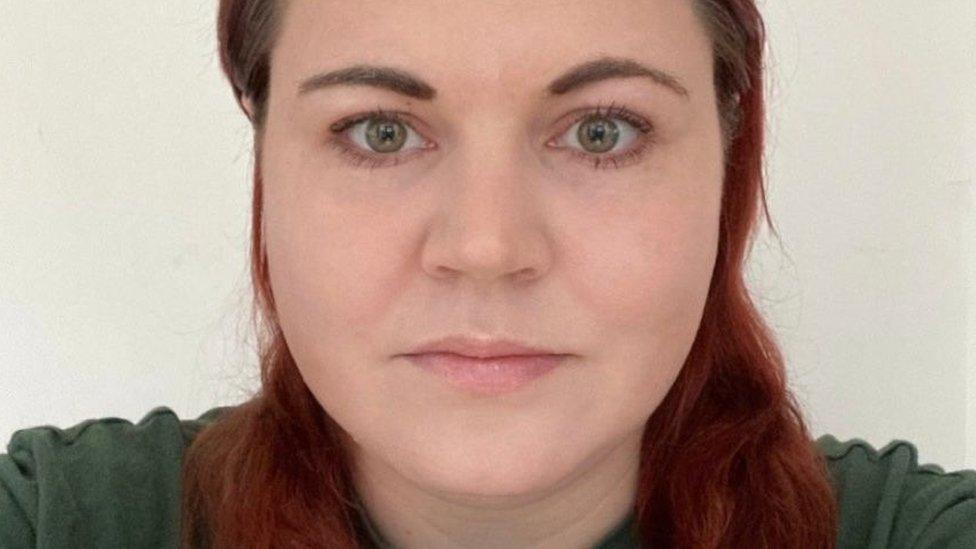
Francesca was jailed for fraud in 2020 and now works to support former inmates
Former inmates of a prison where several women have taken their own lives have condemned it as "no place for a vulnerable young woman".
There have been at least 11 suicides at HMP Styal in Cheshire since 2007 - more than any other women's jail in England.
The youngest, Annelise Sanderson, was 18 when she was found dead in her cell in December 2020.
An investigation by BBC North West has learned of failings not only in her care but that of several other inmates.
Warning: This article contains distressing content
Francesca Barker-Mills was detained at HMP Styal for two months after being convicted of fraud in December 2020.
"It was hell on earth," said the 36-year-old of her first night.
"The first thing that resonates with me was the screaming. There was blood spatter on the walls. It was horrible.
"My first two weeks in Styal were during Covid so I spent 14 nights alone in the cell block. No human contact, no outdoor time, no prescribed medication.
"I am very lucky to be alive because I had many opportunities to kill myself. There was a complete lack of care and support."

If you have been affected by any of the issues raised in this article, help and advice can be found on the BBC Action Line.

One day, Francesca said a prison officer slipped a note under her cell door, saying an 18-year-old girl had taken her own life.
The girl was Annelise Sanderson, who had been arrested in the summer of 2020 for stealing a pair of trainers and assaulting emergency workers who had intervened.
On the day of her arrest, she poured petrol on herself and tried to drink it.
Instead of being offered psychiatric treatment, she was subsequently sentenced to 12 months at Styal.
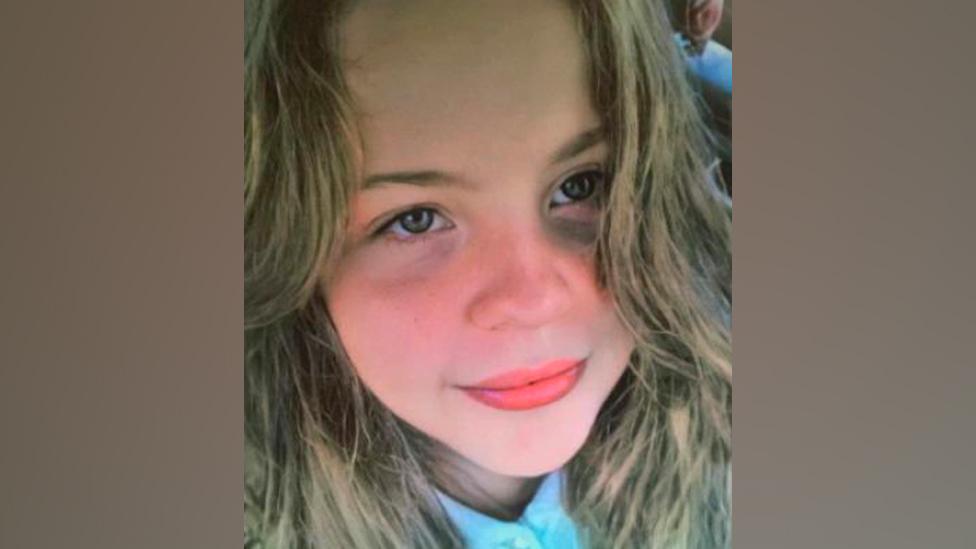
An independent investigation revealed there had been "no structured, regular welfare checks" on Annelise Sanderson
Once there, Annelise again showed signs of being unwell.
"She seemed like a lost soul," Annelise's mum told her inquest.
Six months after entering the prison, the teenager hanged herself.
An independent investigation, seen by the BBC, revealed there had been "no structured, regular welfare checks".
And no emergency code was radioed when she was found, meaning healthcare staff could not bring a defibrillator to the scene.
'Pit of monsters'
"I was devastated," said Francesca.
"She was a baby. I was a 30-something woman when I got sent to prison. I had lived a life of many choices, and she didn't have that opportunity.
"She made mistakes and needed help yet found herself in the same pit of monsters as me. It was no place for a vulnerable young woman."
Francesca said she was taken aback by her fellow prisoners' reaction.
"I was horrified," she said. "But for other inmates, it wasn't out of the ordinary.
"We've desensitised women in prison to the point where someone killing themselves is no longer a shock."
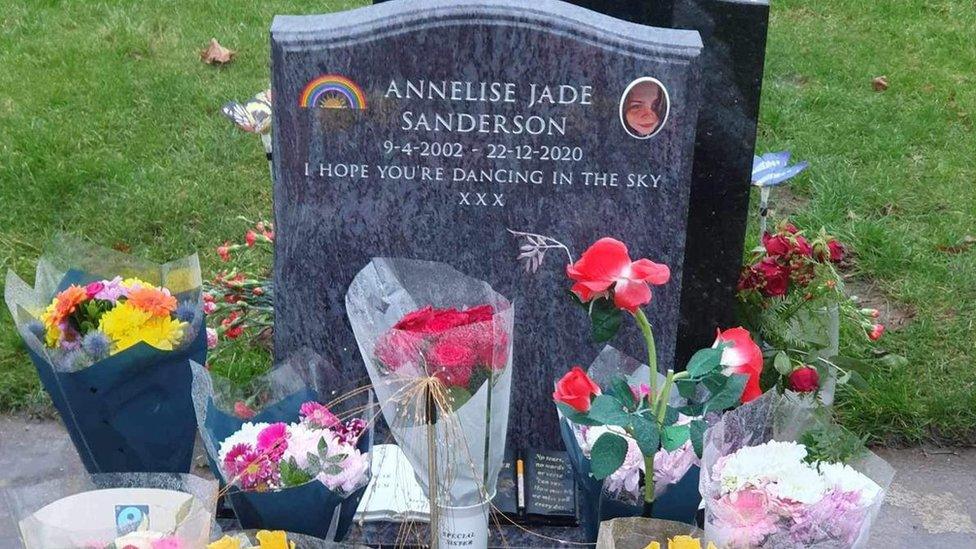
Annelise's family say they believe her death could have been prevented
After six self-inflicted deaths in a year, an urgent review was ordered in 2003 into the treatment of vulnerable women at Styal and other prisons.
In her report, Baroness Corston said she was "dismayed to see so many women frequently sentenced for short periods of time for very minor offences" and called for a more "woman-centred approach" focusing on therapy and rehabilitation.
But nine years later, inspectors said conditions at Styal's mental health unit were "more shocking and distressing than anything I have yet seen".
BBC North West has examined critical reports into the self-inflicted deaths of 11 prisoners and found a series of failings.
Valerie Hayes was found hanged in her cell just 40 days into a second stretch at the prison in May 2006.
The 42-year-old from Bolton, described by a GP as a suicide risk, had a long history of mental illness and self-harm and was under the care of a psychiatrist.
A subsequent report, external by the Prison and Probations Ombudsman commended staff for their effort in trying to save her but found they did not know how to use the defibrillator.
Staff were also criticised over Lisa Marley's self-inflicted death in January 2008.
The 32-year-old, from Blackpool, had been recalled on licence after serving time for assaulting a police officer who had tried to stop her self-harming.
A report into her death, external found officers had not referred her to a mental health assessment team, even though she had a history of self-harm and suicide attempts.
Despite a safety plan stating she should be checked five times an hour, no checks were carried out on the morning she died.
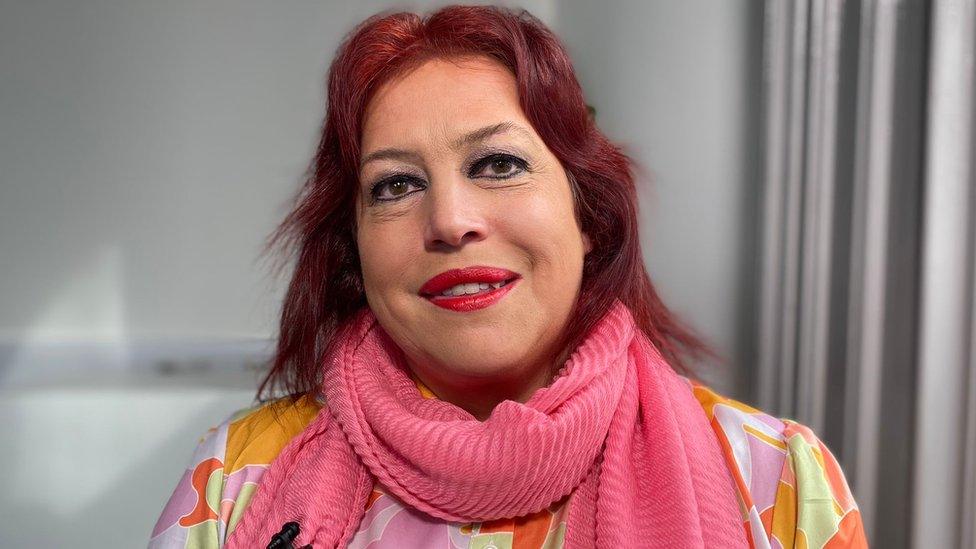
Josie Richardson spent 20 weeks in HMP Styal in 2018 for a £250 company credit card fraud
An investigation is under way into the deaths of two more Styal prisoners just before Christmas.
Laura Parry, 59, and Sarah Jackson, 46, died within a week of each other.
Josie Richardson, from Tarporley, Cheshire, said she was still haunted by what she had witnessed.
"I saw women try to kill themselves," she said. "I've never witnessed self-harm like that.
"I've never seen people's arms and hands and faces so scarred. It is almost perceived as normal.
"You've got violent prisoners - killers, sex offenders - mixed up with people in for very low-end crime.
"People with severe mental health problems who've never been in jail before - and they just can't cope."
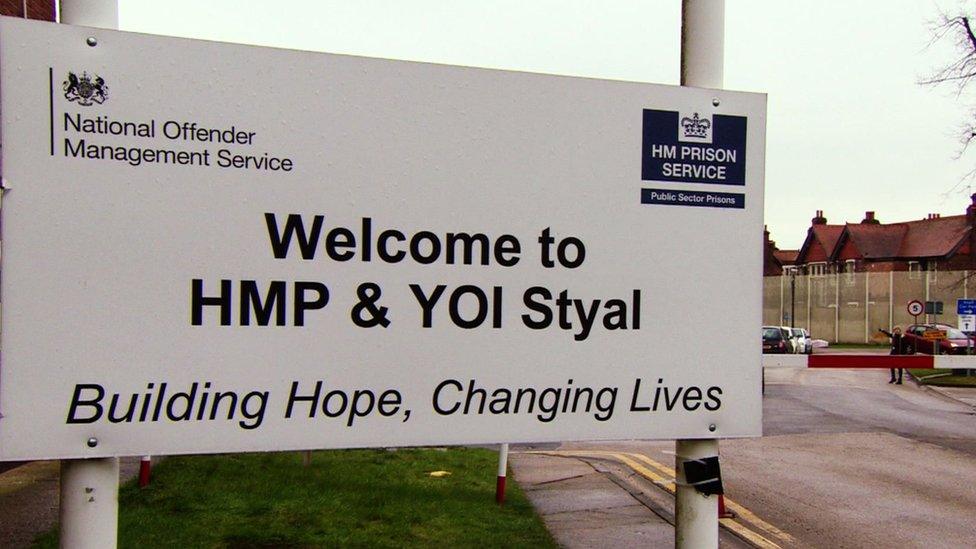
The message at the entrance to HMP Styal speaks of rehabilitation
Josie said her heart sank when she heard about Annelise's death, adding: "I just thought, 'not another one.'
"I shared a house with 15 ladies when I was there. Three of them are dead. One in prison and two after they got out. I'm not shocked by that.
"Women aren't just dying in the prison, they're taking their own lives once they get outside because they don't get the help.
"I've never spoken about my time in prison before but after hearing about Annelise I just thought I had to speak up. Because these women need a voice."
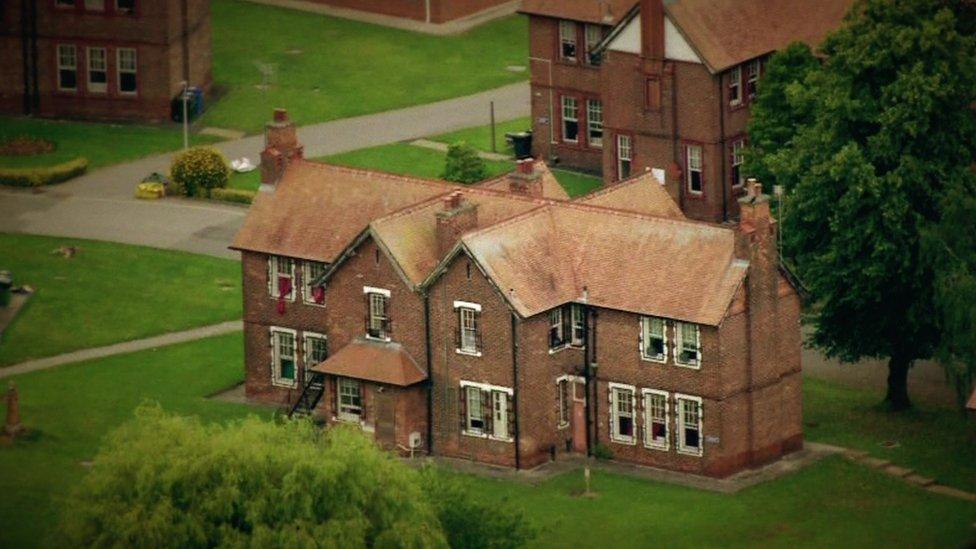
HMP Styal occupies former buildings of Styal Cottage Homes, which opened as an orphanage in 1898
Following Annelise's death, the government has tripled Styal's mental health budget to £1.5m.
A Ministry of Justice spokesperson said: "The number of women in prison has fallen considerably since 2010 and we are continuing to invest millions into community services to steer female offenders away from jail and help get their lives back on track.
"However, for those women who judges decide must serve a prison sentence we are transforming the mental health support on offer in our jails, including tailored, round-the-clock care, extra face-to-face time with specialist staff and improved self-harm training for all frontline officers."

Why not follow BBC Manchester on Facebook, external, X, external and Instagram, external? You can also send story ideas to northwest.newsonline@bbc.co.uk, external
Related topics
- Published16 January 2024
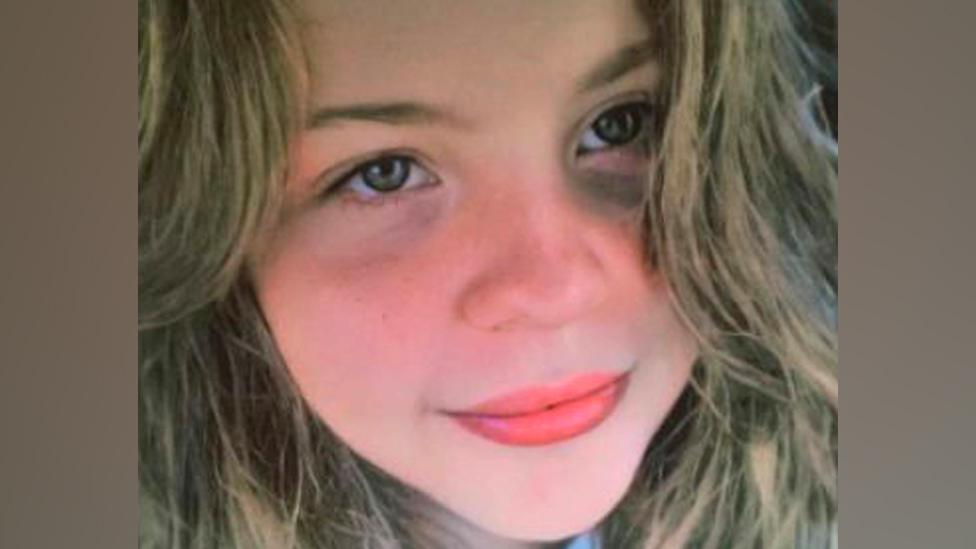
- Published15 January 2024

- Published23 December 2020
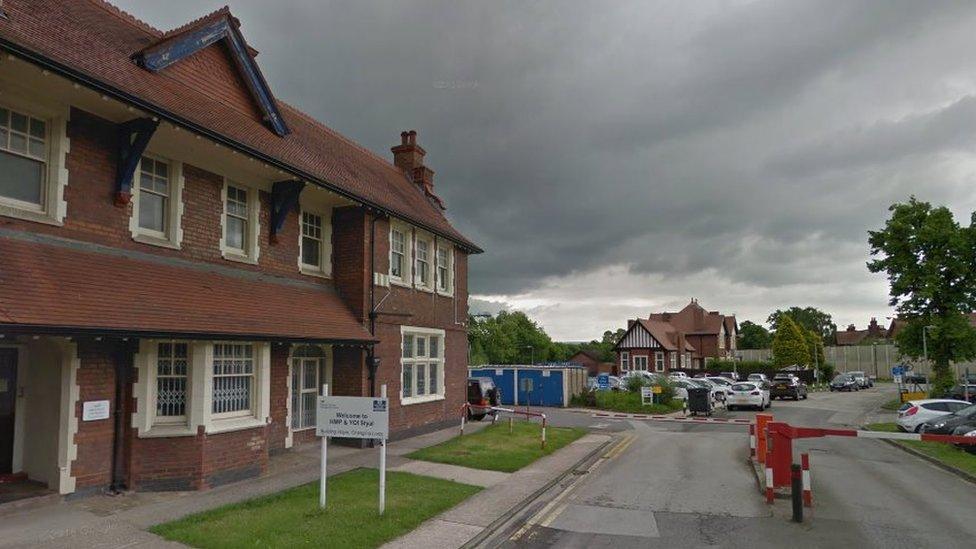
- Published11 January 2022
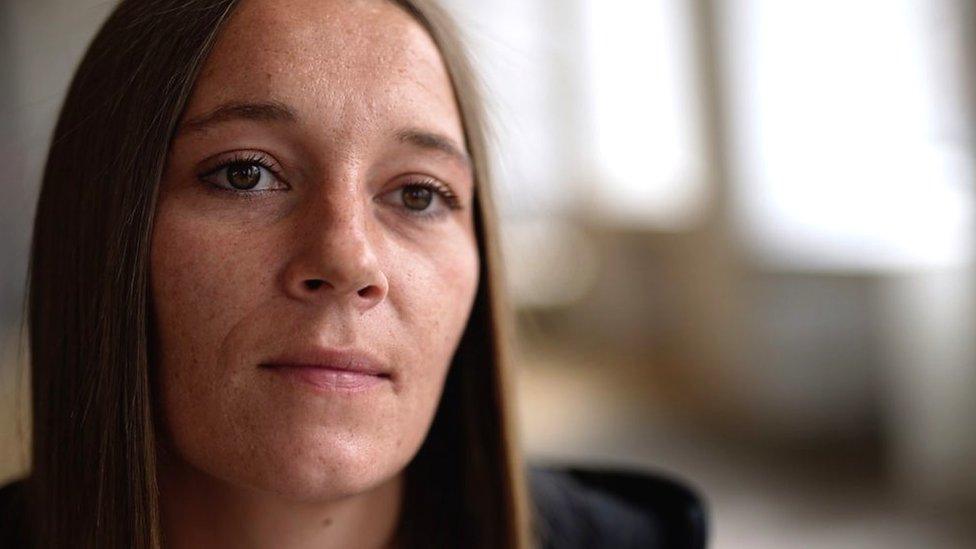
- Published15 May 2019
